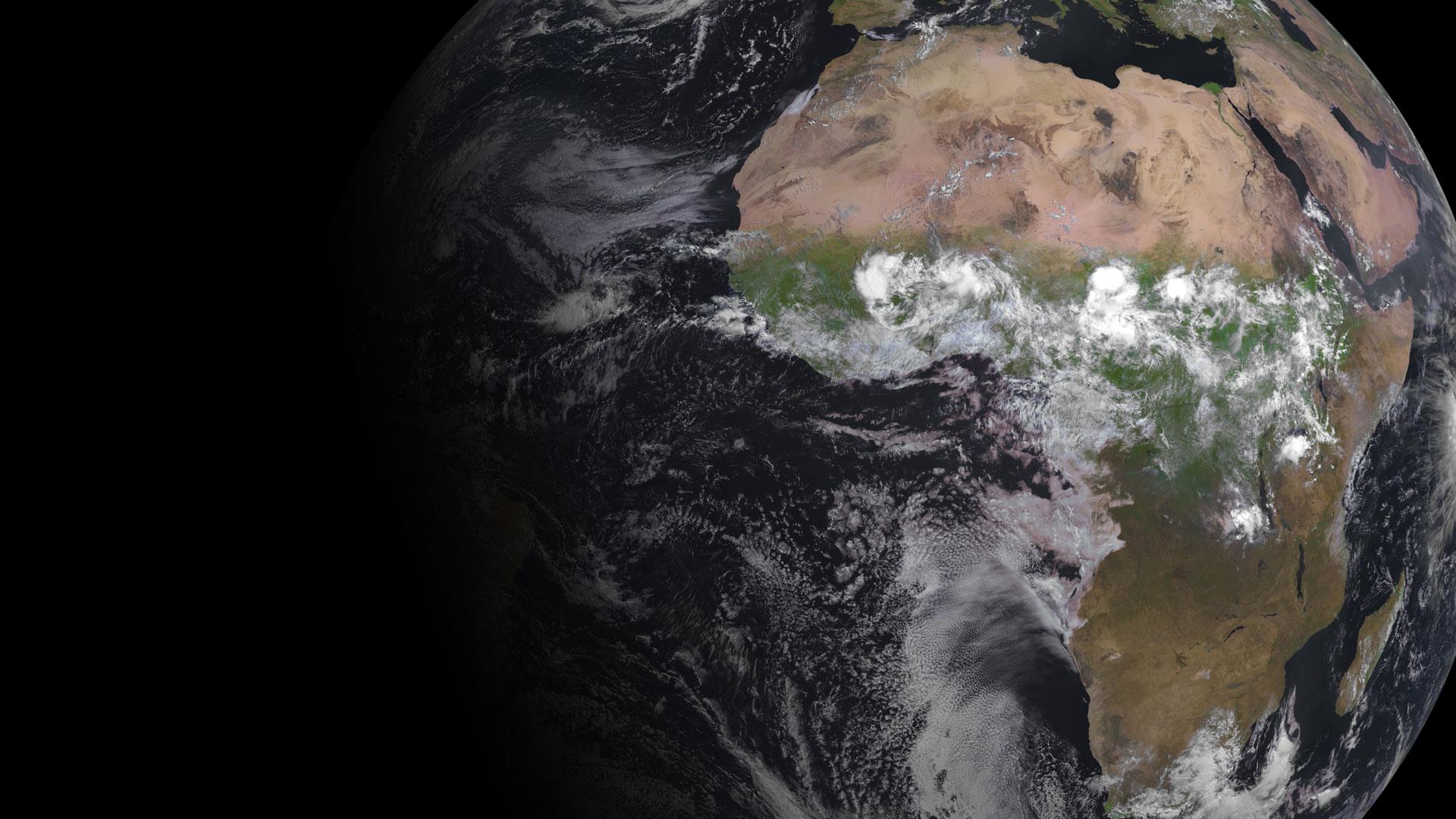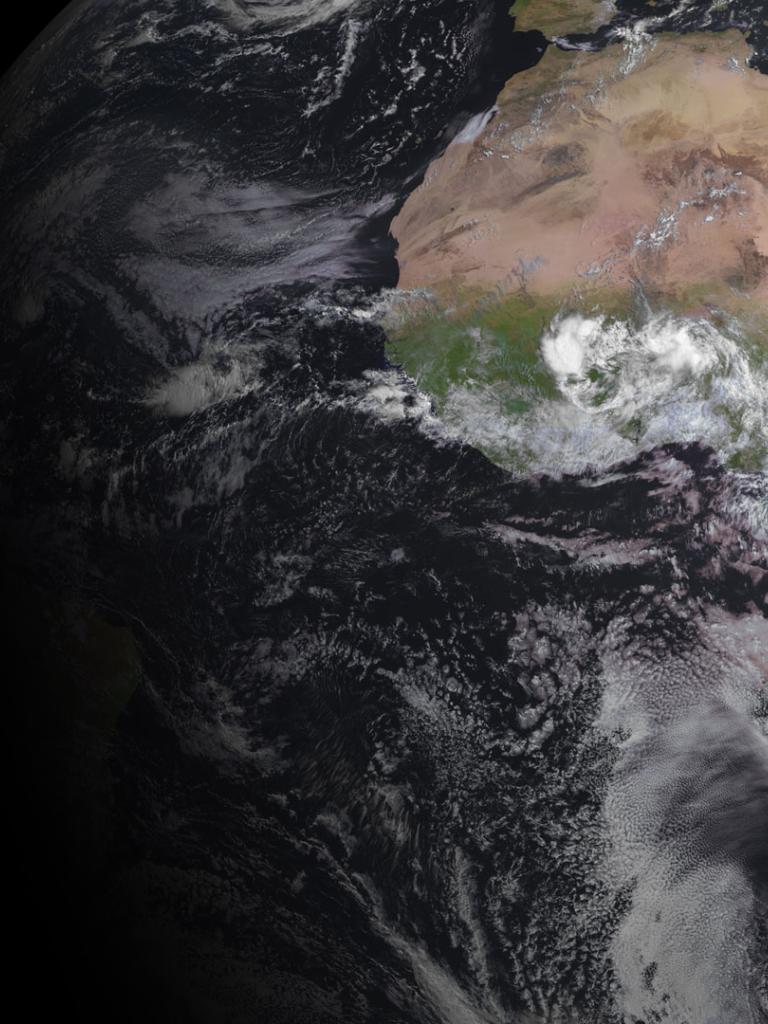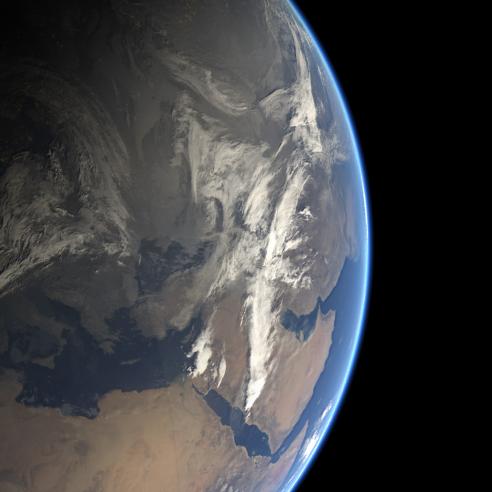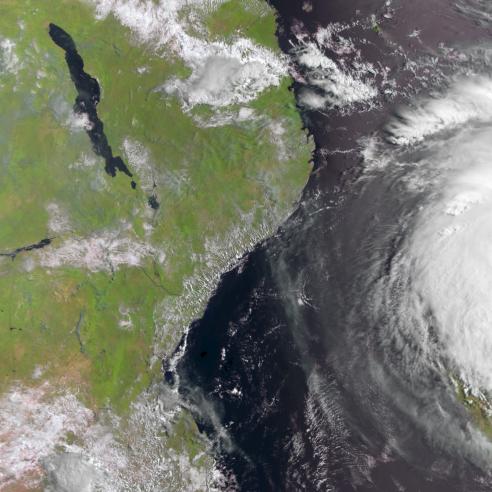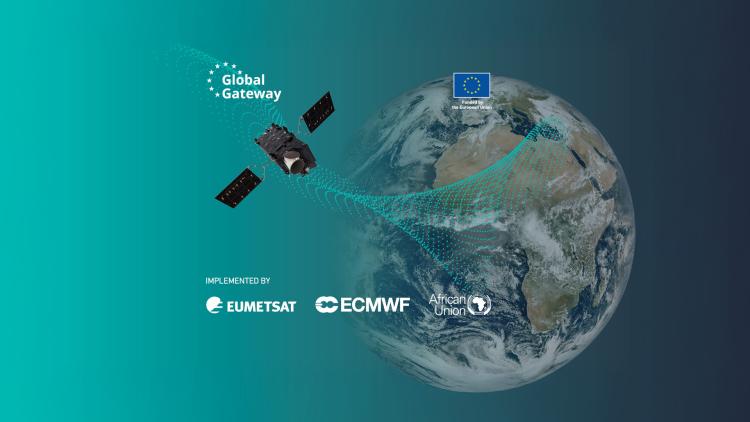24 October 2025
24 April 2023
EUMETSAT’s cooperation with Africa is part of our strategic objective “to expand the user base for EUMETSAT data, products and services in EUMETSAT member states and among WMO members”. Specifically relating to Africa, our strategy says,
“The objective shall be to help the meteorological communities in Africa get easier access to EUMETSAT data, products and services and to make best use of available and planned satellite services in order to help individual countries and regions to meet their respective needs”.
It is a long-term commitment to the sustainability of investments in infrastructure and capacity building to allow the best possible use of satellite data for weather and climate services.
Contribution to the Joint Africa-EU Strategy
The European Union and African states adopted a joint strategy towards a long-term, shared vision for Africa-EU relations and defining priorities, notably related to the climate, environment, and space.
EUMETSAT’s activities in Africa support:
- using space-based technologies and information, such as the Copernicusprogramme, to inform decision makers
- enhancing capacity to adapt to adverse impacts of climate change and increase resilience to environmental desertification, health threats and humanitarian crises
- building on important initiatives, such as the Paris climate agreement and the Sendai framework for disaster risk reduction.
How we contribute
EUMETSAT’s support for Africa extends back more than two decades. As our Meteosat satellites have a constant view of the African continent, the data from these systems are of crucial importance to weather forecasters, climate scientists and decision makers in Africa.
EUMETSAT has committed to making data from its most advanced meteorological satellites, the first of which was launched at the end of 2022, available in Africa. We will also provide technical support and training to ensure African communities reap the greatest potential benefit from the new systems.
From strategy to action
Over the past 25 years, EUMETSAT has undertaken multiple activities to meet our strategic objectives concerning Africa. We continue to make a key contribution within WMO and joint European Union-Africa strategies.
Our activities, implemented directly or through joint projects and initiatives, include:
- satellite data coverage of Africa ensured with an appropriate data policy
- real-time data access for African users via EUMETCast / GEONETCast
- strengthening capacity through training to make best use the satellite data
- ensuring close links with African users of our data, through biennial forums and via the EUMETSAT Help Desk)
Supporting joint EU-Africa initiatives
To maximise the benefits of our involvement in projects in Africa, EUMETSAT links activities to existing initiatives related to weather, the climate and environmental monitoring. Through the Joint Africa-EU Strategy, EUMETSAT is involved in three major initiatives on the continent.
The Space for Early Warning in Africa (SEWA)
The SEWA project started in early 2025 and aims to strengthen access to Meteosat Third Generation (MTG) data on the African continent and foster the creation of the African Meteorological Satellite Application Facility (AMSAF). AMSAF will support resilience to extreme weather events across the continent.
Within this context, EUMETSAT will further its long-standing and impactful activities with the African Union Commission as well as the regional and national weather services in Africa. SEWA is part of the Africa-EU Space Partnership Programme.
Follow the development of the project here.
The GMES and Africa initiative
Through this initiative, EUMETSAT provides real-time access to and training on products from the EU’s Copernicus programme to GMES and Africa consortia to strengthen the use of Earth observation in support of environmental policies for sustainable development.
ClimSA: Climate services in the African, Caribbean and Pacific regions
EUMETSAT makes available its 40-plus years’ worth of satellite observations over Africa to the ClimSA programme to support the climate information services value chain. ClimSA aims to improve access to and use of climate information and to enable and encourage the generation and use of climate services and applications for decision making processes at all levels.
Transition to MTG in Africa
The Abidjan Declaration, signed in September 2018, calls for the strengthening of capacities in Africa, including preparing to access data from the Meteosat Third Generation (MTG) satellites and ensuring that the best use is made of the data it provides.
The declaration also encourages the creation of an African Meteorological Satellite Applications Facility (AMSAF) to generate products tailored for Africa to meet specific regional needs.
The Dar es Salaam declaration, signed in September 2022, encourages the African Union Commission (AUC) and the European Union to mobilise resources to strengthen capacities for exploiting MTG and to establish the AMSAF. It also requests EUMETSAT to continue to provide Meteosat data free of charge to Africa.
Transitioning to MTG and the AMSAF will also contribute to the WMO’s ‘Early Warning for All Initiative’ in Africa, building on and reinforcing the Africa Multi-Hazard Early Warning and Early Action System (AMHEWAS).
The memorandum of understanding signed on 8 May 2024 reiterates the willingness of the AUC and EUMETSAT to ensure that African environmental and meteorological services as well as other users, continue to benefit from EUMETSAT’s data, from both its current and next-generation satellite systems. It provides the framework for EUMETSAT and the AUC to co-design future cooperation projects, to work together on deploying new infrastructure for data reception, and to provide educational materials and expertise in order to ensure that the satellite data make the biggest possible impact.
Cooperation with regional technical centres
EUMETSAT has established close cooperation with African regional technical centres which undertake weather, climate and environmental monitoring in support of socio-economic policies in Africa (including agriculture, desertification, food security and water management). These centres include:
- the African Centre for Meteorological Applications for Development (ACMAD);
- the Centre Regional de Formation et d’Application en Agrométéorologie et Hydrologie Opérationelle (AGRHYMET);
- the Intergovernmental Authority on Development (IGAD) Climate Prediction and Applications Centre (ICPAC); and others.
Cooperation with training activities
EUMETSAT cooperates with four World Meteorological Organization (WMO) Centres of Excellence in Africa on training in satellite meteorology:
- the Direction de la Météorologie Nationale (DMN, Maroc Meteo), Casablanca, Morocco
- the Ecole Africaine de la Météorologie et de l’Aviation Civile (EAMAC) of the Agence pour la Sécurité de la Navigation Aérienne en Afrique et à Madagascar (ASECNA), Niamey, Niger
- the Institute for Meteorological Training and Research (IMTR), Nairobi, Kenya
- the South African Weather Service (SAWS) training centre, Pretoria, South Africa
Cooperation with policy institutions
EUMETSAT liaises with African policy institutions that provide input into projects and initiatives and ensure they are properly aligned with national, regional and continental policies. These institutions include:
- the African Union Commission (AUC), which is the executive and administrative branch of the African Union
- the African Regional Economic Communities (IGAD, ECOWAS, IOC, ECCAS, CEMAC, SADC) and the Organisation of African, Caribbean and Pacific States (OACPS)
- the African Development Bank (AfDB), which oversees the implementation of the Satellite and Weather Information for Disaster Resilience in Africa (SAWIDRA) projects
- the African Space Agency brings together the 55 member countries of the African Union to coordinate and implement Africa's space ambitions.
